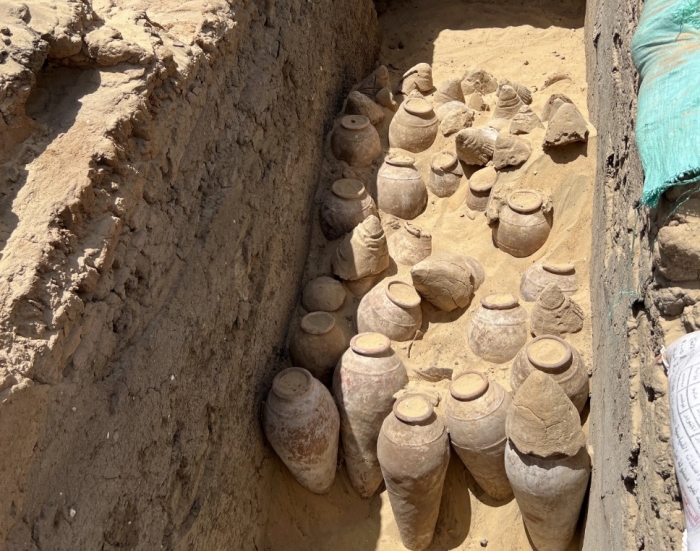The 5,000-year-old wine that could rewrite the history of ancient Egypt
Archaeological discoveries cast doubt on established knowledge of ancient Egypt
2023-10-18

Recent excavations in the ancient Egyptian city of Abydos are prompting researchers to rethink longstanding assumptions about the history of this storied civilization. A German-Austrian archaeological team led by a scholar from the University of Vienna has unearthed significant findings in the tomb of Queen Meret-Neith that not only call into question the traditional timeline of Egypt's leadership but also offer fascinating insights into the ancient culture's viticulture practices.
Located along the Nile River, not far from the modern city of Luxor, Abydos holds the distinction of being ancient Egypt's first royal cemetery. The tomb of Queen Meret-Neith, which dates back to around 3,000 B.C., stands as the only monumental burial site in Abydos dedicated to a woman. This era, known as Egypt's First Dynasty, was a seminal period in the region's history, marking the unification of Upper and Lower Egypt into a single kingdom.
Upon excavation, the archaeological team discovered hundreds of large, well-preserved wine jars within the tomb. Remarkably, some of these jars still contained wine that is approximately 5,000 years old. Ancient grape seeds were also found sealed within many of these jars, offering intriguing clues into the state of winemaking at the time.

Inscriptions within the tomb suggest that Queen Meret-Neith was responsible for key government offices, such as the treasury. The importance of this information cannot be overstated, as it lends credence to the argument that she may have held substantial authority, potentially equivalent to that of a pharaoh. Historically, Queen Hatshepsut, who ruled during the 18th Dynasty approximately 1,500 years after Meret-Neith, has been considered the first female pharaoh. However, the recent discoveries could shift this narrative, fueling speculation that Meret-Neith may have, in fact, been the first female leader of ancient Egypt.
Adding further complexity to these findings, Meret-Neith's burial chamber also includes the tombs of 41 courtiers and servants, suggesting her elevated social standing and possibly pointing to her as a pivotal figure in ancient Egyptian governance. The presence of such a large number of retainers in her burial site indicates the high level of respect and authority she commanded.
For the time being, many questions about Meret-Neith remain unanswered, and further studies are essential to confirm these revolutionary theories. Nevertheless, the discoveries made in her tomb have already set the academic world abuzz, compelling historians and archeologists to reconsider established narratives and provoking fascinating debates about gender roles in ancient leadership. Additionally, the findings related to ancient viticulture could have broader implications for our understanding of agricultural and cultural practices of the period.
Founded in 2007, Vinetur® is a registered trademark of VGSC S.L. with a long history in the wine industry.
VGSC, S.L. with VAT number B70255591 is a spanish company legally registered in the Commercial Register of the city of Santiago de Compostela, with registration number: Bulletin 181, Reference 356049 in Volume 13, Page 107, Section 6, Sheet 45028, Entry 2.
Email: [email protected]
Headquarters and offices located in Vilagarcia de Arousa, Spain.